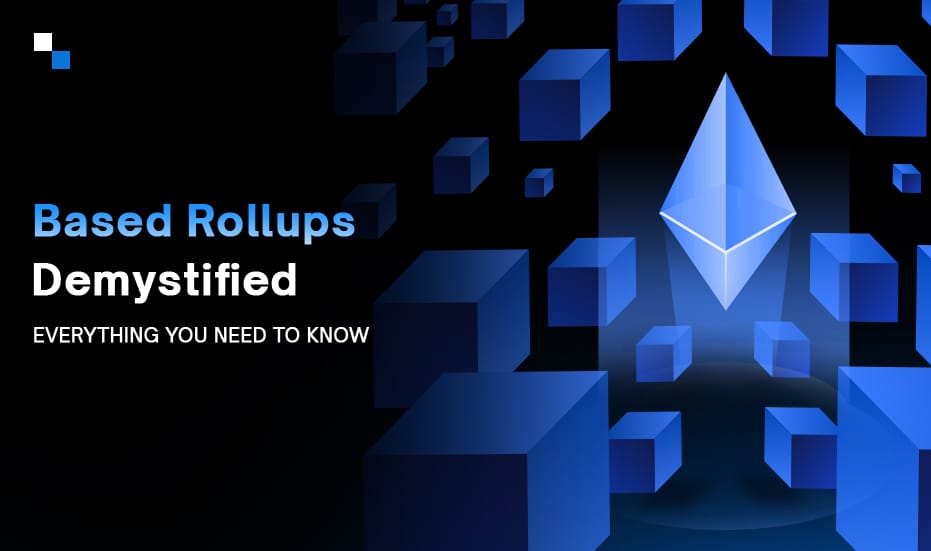
Top 10 Layer 2 Blockchain Solutions in 2024 to Supercharge Your Blockchain Scalability
February 19, 2024
How does Tokenization of Real-world Assets helps the businesses in 2024
February 20, 2024The core of business operations lies in the efficient supply chain management. If it does not advance with the continuously evolving market, a business might risk falling behind its competitors in the race for success. According to a report, 67% of supply chain managers use spreadsheets as their supply chain management solution. This is an incredibly high number relying on traditional tools that require manual efforts and are inefficient as well.
The traditional supply chain model is associated with manual processes and paper-based agreements that result in disputes, and delays and restrict the transparency throughout the supply chain, which hinders innovation and growth. However, a new wave of automation powered by blockchain technology can unlock a new business model in the supply chain through automated agreements.
In this blog, we will delve deeper into how automated agreements or blockchain supply chain solutions can be a game-changer for supply chain management.
Unveiling the Harsh Reality of Existing Supply Chain
The supply chain is increasingly becoming complex due to the involvement of multiple players, which has somehow made the industry plagued with numerous problems, including-
- Misrepresentations regarding the origin of goods and product standards.
- Fragmented communication between parties
- Network disruption
- Financial fraud, such as manipulating record systems to generate misleading invoices
- Counterfeit goods
- Use of outdated technology & paper-based records that are difficult to track
- Security breaches
- Poon inventory management
- Complexity while investigating supply chains for illegal or unethical practices
Such inefficiencies are stealing the company’s profits. The following are some statistics highlighting the harsh reality of traditional supply chain management.
- According to a study, supply chain delays cause several companies to face a 15% loss in revenue.
- McKinsey’s 2021 report shows that 2% of businesses have visibility over their Tier 3 suppliers.
- Organizations employing inadequate inventory management practices typically achieve an average inventory accuracy rate of only 63%.
Can you afford to rely on such an inefficient traditional supply chain model? Now is the time to embrace automated agreements or blockchain supply chain solutions. They possess the capability to address these challenges and establish a safer, more intelligent supply chain for your business.
Invest in Automated Agreements for a Resilient Supply Chain
Imagine a shipment backed by a smart contract automatically releasing payments upon successful product delivery, conducting product quality verification through sensor data, and logistics optimization based on real-time demand. This is how automated agreement works.
Below, we will focus on the supply chain challenges and gain insight into how automated agreements and blockchain supply chain development can emerge as transformative tools to fight against them.
1. Frictionless Transactions
Challenge
The traditional supply chain management system often involves manual paperwork, approval, and reconciliation processes that result in delays and increase the risk of errors. The restricted transparency into the transaction status also hampers trust and transparency.
Solution
Automated smart contract agreements automate the processes when predetermined conditions are met. It eliminates manual paperwork, reduces manual errors, and enables faster transaction, which in turn reduces the cost and improve the supply chain workflow. Real-time data integration with blockchain supply chain solutions, IoT devices, and other technologies brings transparency throughout the supply chain.

2. New Revenue Streams
Challenges
The supply chain model with limited collaboration mechanisms, slower adaptation rate to market changes, rigid business models, major focus only on core operations, limited visibility, and data utilization capabilities, might limit the attention to exploring innovative models and exploiting new revenue streams.
Solutions
Capitalizing on blockchain supply chain development and automated agreements is a wise approach. Automated agreements offer flexible financing models such as pay-per-use or performance-based payments that unlock new revenue streams for suppliers and service providers. Data-driven insights derived from self-executing contracts can also be monetized by offering analytics and optimization services to other participants in the supply chain.
3. Collaborative Ecosystems
Challenge
Smooth collaboration is often elusive within traditional supply chain systems due to inherent limitations in communication, information sharing, and flexibility. Such a conventional model lacks visibility and has siloed processes. It becomes challenging for multiple parties involved in the supply chain, such as manufacturers, suppliers, and distributors, to share timely and accurate information. Reliance on outdated communication also contributes to delays and errors and further restricts the smooth exchange of data and coordination.
Solutions
Automated agreements powered by blockchain provide transparent, immutable records of transactions that help build trustless collaboration. Smart contracts execute predefined terms automatically and eliminate the need for intermediaries. such a decentralized system builds a secure supply chain ecosystem having real-time visibility, which fosters trust among participants. The automated dispute resolution mechanisms in smart contracts also reduce friction and legal costs, which further reinforces the collaborative relationship.
4. Dynamic Optimization
Challenge
Traditional supply chains are often based on rigid structures that are not flexible to real-time challenges. Hence, businesses employing such models frequently overlook the opportunities that arise from disruptions in the supply chain.
Solution
Automated agreements can seamlessly adapt to evolving conditions in real-time. It can adjust schedules, prices, and logistics based on resource availability, unforeseen events, or demand fluctuations. Such a flexible environment provided by blockchain supply chain solutions equipped with automated agreements leads to reduced waste, increased agility, and optimized resource utilization.
Final Words
Automated agreements backed by powerful blockchain technology are a game-changer as they transform the way businesses interact and create value within the supply chain. As a business owner, embracing the power of blockchain supply chain solutions featuring automated agreements would be a smart approach to unlock a new level of efficiency, collaboration, security, and transparency.
If you’re looking for an expert who can help you lay the foundation for sustainable, value-driven, and future-proof supply chains, reach out to Antier today! Antier is a leading blockchain supply chain development company, specializing in building automated agreements for businesses from industry verticals. Backed by a talented workforce, Antier is the ideal partner you can trust for your blockchain supply chain development services.



